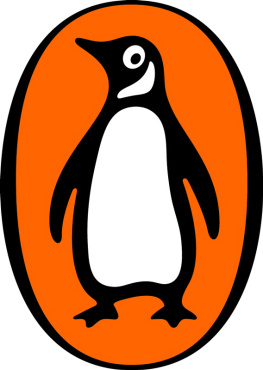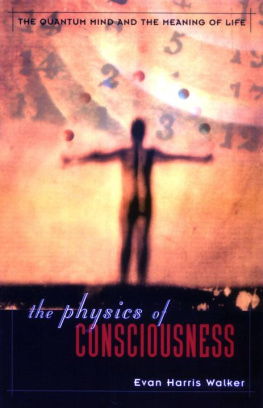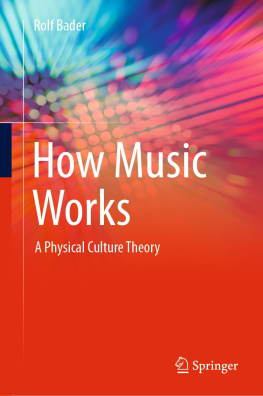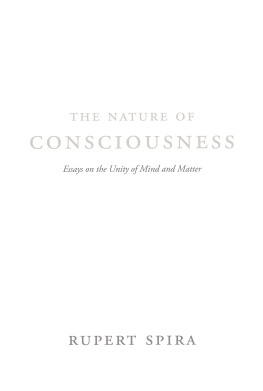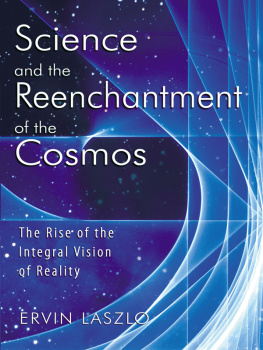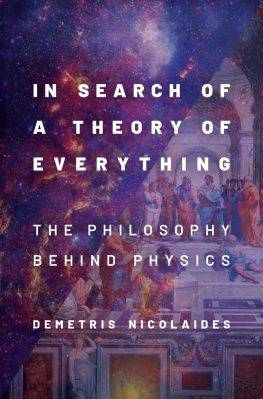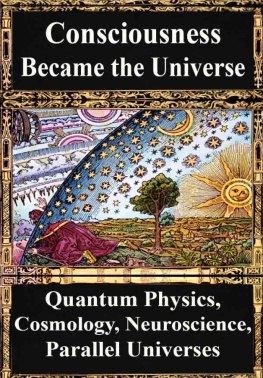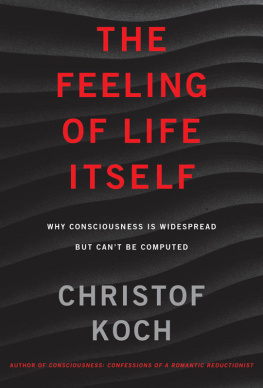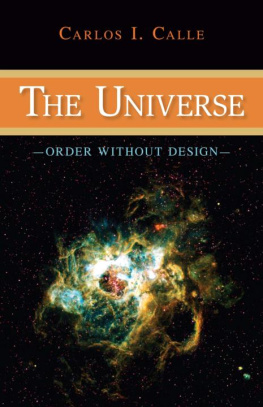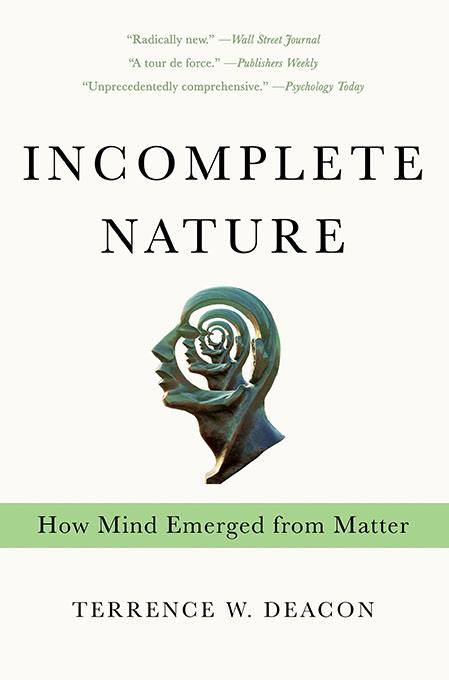
ALSO BY TERRENCE W. DEACON
The Symbolic Species
Incomplete
Nature

How Mind
Emerged from Matter
Terrence W. Deacon

W. W. NORTON & COMPANY New York London
To my parents, Bill and JoAnne Deacon (and the Pirates)
CONTENTS
ACKNOWLEDGMENTS
I f any of us can claim to see the world from a new vantage point it is because, as Isaac Newton once remarked, we are standing on the shoulders of giants. This is beyond question in my case, since each of the many threads that form the fabric of the theory presented in this book trace their origin to the life works of some of the greatest minds in history. But much more than this, it is often the case that it takes the convergence of like minds stubbornly questioning even the least dubious of our collective assumptions to shed the blinders that limit a particular conceptual paradigm. This is also true here. Few of the novel ideas explored here emerged from my personal reflections fully formed, and few even exhibited the rough-hewn form described in this book. These embryonic ideas were lucky to have been nourished by the truly dedicated and unselfish labors of a handful of brilliant, insightful, and questioning colleagues, who gathered in my living room, week after week, year after year, to question the assumptions, brainstorm about the right term for a new idea, or just struggle to grasp a concept that at every turn seemed to slip through our grasp. We were dubbed Terry and the Pirates (after the title of a postwar comic strip) because of our intense intellectual camaraderie and paradigm-challenging enterprise. This continuous thread of conversation has persisted over the course of nearly a decade and has helped to turn what was once nearly inconceivable into something merely counterintuitive.
The original Pirates include (in alphabetical order) Tyrone Cashman, Jamie Haag, Julie Hui, Eduardo Kohn, Jay Ogilvy, and Jeremy Sherman, with Ursula Goodenough and Michael Silberstein playing the role of periodic drop-ins from across the country. Most recently Alok Srivastava, Hajime Yamauchi, Drew Halley, and Dillon Niederhut have joined, as Jamie and Eduardo moved away to careers elsewhere in the country. Most have read through major portions of this manuscript and have offered useful comments and editorial feedback. Portions of the chapter on Self were re-edited from a paper co-written with Jay Ogilvy and Jamie Haag, and fragments of a number of chapters were influenced by papers co-authored either with Tyrone Cashman or with Jeremy Sherman. The close involvement of these many colleagues was demonstrated also in the long days that Ty Cashman, Jeremey Sherman, Julie Hui, and Hajime Yamauchi spent with me struggling through more than 700 pages of copy-editing queries and doing the necessary error checking that led to the final manuscript. Without the collective intelligence and work of this extended mind and body, it is difficult for me to imagine how these ideas would ever have seen the light of day, at least in a semi-readable form. In addition, I owe considerable thanks to the many colleagues around the country who have read bits of the manuscript and have offered their wise counsel. Ursula Goodenough, Michael Silberstein, Ambrose Nahas, and Don Favareau, in particular, read through early versions of various parts and provided extensive editorial feedback. Also my editor on The Symbolic Species , Hilary Hinzman, did extensive editorial work on the first four chapters, which therefore will be the most readable. These efforts have helped to greatly improve the presentation by cleaning up some of the oversights and confusions, and simplifying my sometimes tortured prose. Indeed, I have received far more editorial feedback than I have been able to take advantage of, given time and space.
So, it is only by the great good fortune of being in the right place and time in the history of ideasheir to countless works of geniusand surrounded by a loyal band of fellow travelers that these ideas can be shared in a form that is even barely comprehensible. This loyal band of Pirates has been critical, supportive, patient, and insistent in just the right mix to make it happen. The book is a testament to the marvelous synergy of these many converging contributions, which have made this effort both a most exciting journey and a source of enduring friendships. Thank you all.
Finally, and most important, has been the constant unfaltering encouragement of my wife and best friend, Ella Ray, who has understood more than anyone else the limitations of my easily distracted mind and how to help me focus on the challenge of putting these ideas on paper, month after month, year after year.
In a book whose breadth extends from theories of the origins of life to the origins of consciousness and from the thermodynamics of work to the dynamics of emotional experience, it is inevitable that some fellow travelers in related fields will have gone unnoticed. Upon publication of the first hardcover edition of this book I received responses from a handful of scholars or their colleagues who were working on related issues and whose work I had not read. So along with acknowledging the many immediate contributors to my work and the innumerable shoulders that I stand upon and must pay tribute to, in this edition I will try to also acknowledge some of the relevant works that have been brought to my attention since completing the first hardcover edition. To meet this need, if only minimally and without extensive reediting of the book, I have added a final endnote to many chapters to introduce the reader to some of these related works and to provide suggestions for further reading and future debate. I apologize in advance for not mentioning other related works that still remain unknown to me.
Berkeley, January 2013
ABSENCE
In the history of culture, the discovery of zero
will always stand out as one of the greatest single achievements of the human race.
TOBIAS DANTZIG, 1930
THE MISSING CIPHER
S cience has advanced to the point where we can precisely arrange individual atoms on a metal surface or identify peoples continents of ancestry by analyzing the DNA contained in their hair. And yet ironically we lack a scientific understanding of how sentences in a book refer to atoms, DNA, or anything at all. This is a serious problem. Basically, it means that our best sciencethat collection of theories that presumably come closest to explaining everythingdoes not include this one most fundamental defining characteristic of being you and me. In effect, our current Theory of Everything implies that we dont exist, except as collections of atoms.
So whats missing? Ironically and enigmatically, something missing is missing.
Consider the following familiar facts. The meaning of a sentence is not the squiggles used to represent letters on a piece of paper or a screen. It is not the sounds these squiggles might prompt you to utter. It is not even the buzz of neuronal events that take place in your brain as you read them. What a sentence means, and what it refers to, lack the properties that something typically needs in order to make a difference in the world. The information conveyed by this sentence has no mass, no momentum, no electric charge, no solidity, and no clear extension in the space within you, around you, or anywhere. More troublesome than this, the sentences you are reading right now could be nonsense, in which case there isnt anything in the world that they could correspond to. But even this property of being a pretender to significance will make a physical difference in the world if it somehow influences how you might think or act.
Next page

